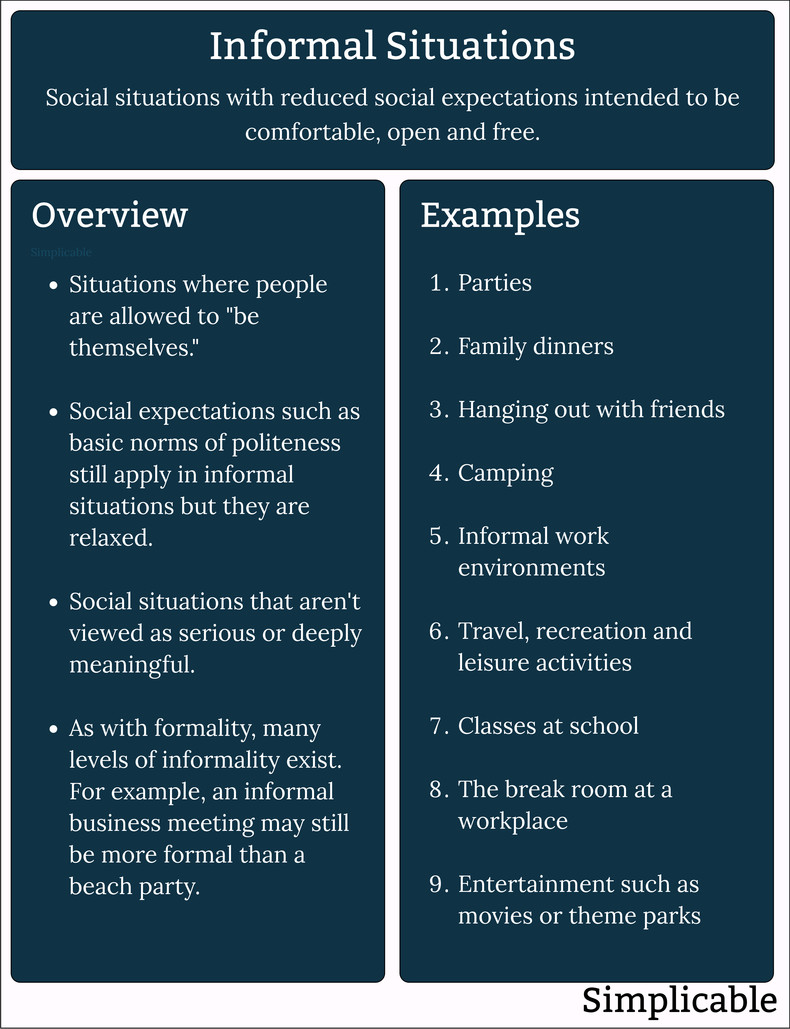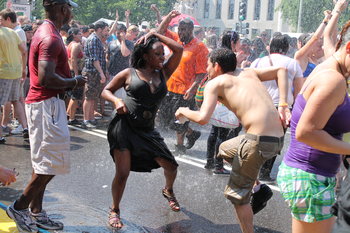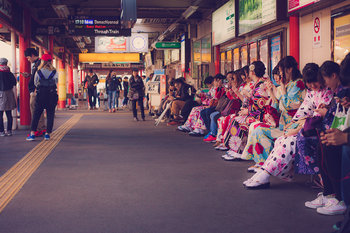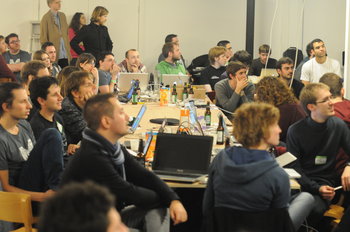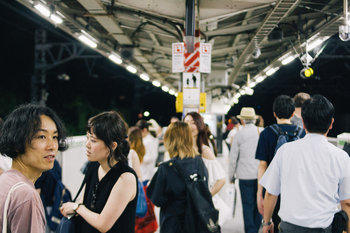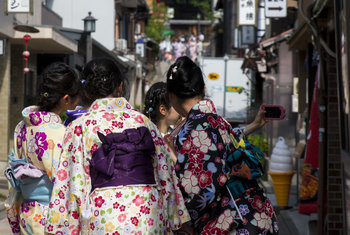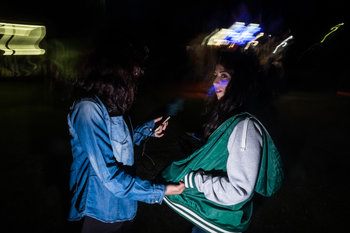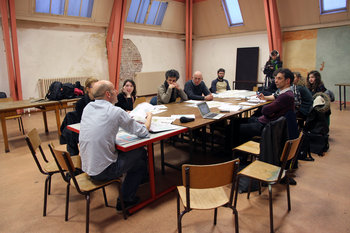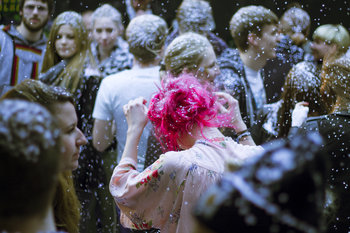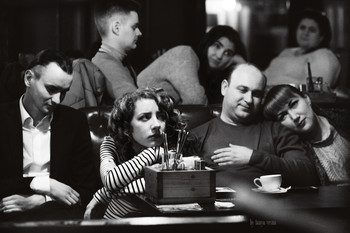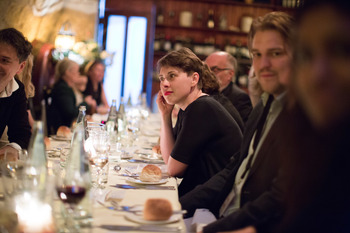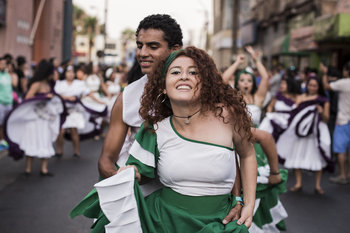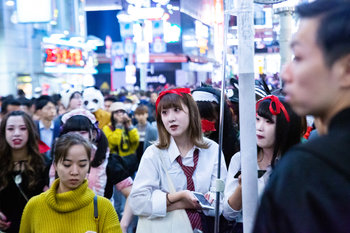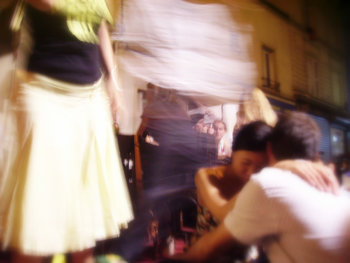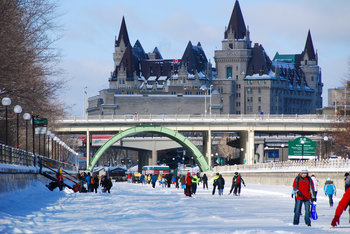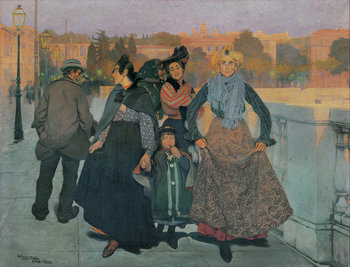|
| |
Informal situations are social situations that have few social expectations. This applies to everyday situations such as conversation or classes at school. Informal situations are still governed by norms but these norms are relaxed as to allow for some degree of freedom. They are also typically non-serious such as situations that aren't viewed as deeply meaningful or high impact. The following are common examples of informal situations.
Barbecues & picnics | Beach days | Cafes | Concerts not considered high culture | Extracurricular activities | Family dinners | Festivals | Fitness classes | Flights | Game nights | Going for lunch | Hanging out with friends | Heart-to-heart conversations | Informal nightlife | Informal work environments | Leisure activities | Movies | Online chats | Outdoor activities | Parties | Recreational activities | Shopping | Social media interactions | Sports events | Talking to people you know well | Training | Travel | Video game interactions | Volunteering | Work breaks |
SummaryInformal situations are social situations that have relaxed social expectations designed to let you be yourself. The following is a basic overview of informal situations with additional examples.DiscussionCultures can be broadly formal or informal. For example, American culture has many areas of formality but is generally less formal than Japanese culture that tends to apply more social expectations to everyday situations.Next: Social Situations
More about social behavior:
If you enjoyed this page, please consider bookmarking Simplicable.
© 2010-2023 Simplicable. All Rights Reserved. Reproduction of materials found on this site, in any form, without explicit permission is prohibited.
View credits & copyrights or citation information for this page.
|

